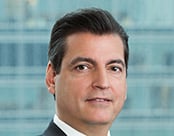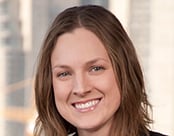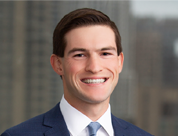Macquarie Infrastructure Corp v. Moab Partners L.P.: United States Supreme Court Holds that Liability under Rule 10b-5(b) Is Limited in the Absence of an Affirmative Statement
|
On April 12, 2024, the United States Supreme Court held that pure omissions do not support a private cause of action under Securities and Exchange Commission Rule 10b-5(b) (“Rule 10b-5(b)”). See Macquarie Infrastructure Corp. v. Moab Partners, L.P., No. 22-1165 (Apr. 12, 2024). In a unanimous decision authored by Justice Sonia Sotomayor, the Supreme Court reversed the United States Court of Appeals for the Second Circuit’s decision allowing a class action lawsuit to proceed, and concluded that a failure to disclose information can support a Rule 10b-5(b) claim only if the omission renders an affirmative statement to be misleading. Factual Background: Petitioner Failed to Disclose Future Business Risk |
|
In Macquarie Infrastructure Corp., the petitioner’s subsidiary owned and operated large “bulk liquid storage terminals.”[1] High-sulfur fuel oils were one of the most prominent liquid commodities stored at the terminals.[2] In 2016, the United Nations’ International Maritime Organization adopted IMO 2020, a regulation that would limit the sulfur content of fuel oil by the beginning of 2020.[3] Notwithstanding the enhanced regulatory framework, the petitioner did not discuss IMO 2020 in any of its public filings.[4] Instead, in 2018, the petitioner announced that its customers’ contracted storage capacity had declined and the petitioner’s stock fell by 41%.[5] |
|
Corporate Omissions Are Insufficient to Establish Liability under Rule 10b-5(b) in the Absence of an Affirmative Statement |
|
Following a significant decline in the petitioner’s stock price, a corporate shareholder filed a lawsuit and alleged that the petitioner violated Rule 10b-5(b) by failing to disclose the enhanced regulatory scrutiny of high-sulfur fuel oils.[6] Rule 10b-5(b) prohibits two types of conduct: (1) any untrue statement of material fact (i.e., “false statements or lies”); and (2) omissions of a material fact necessary “to make the statement made . . . not misleading.”[7] The key issue in the case was, as the Supreme Court noted, “whether this second prohibition bars only half-truths or instead extends to pure omissions.”[8] The Supreme Court opined that “[a] pure omission occurs when a speaker says nothing, in circumstances that do not give any particular meaning to that silence.”[9] Alternatively, half-truths “are ‘representations that state the truth only so far as it goes, while omitting critical qualifying information.’”[10] The Supreme Court held that “Rule 10b-5(b) does not proscribe pure omissions.”[11] Unlike Section 11(a) of the Securities Act of 1933, Congress did not impose liability for pure omissions under Section 10(b).[12] Rather, a disclosure is required “only when necessary ‘to make . . . statements made, in the light of the circumstances under which they were made, not misleading.’”[13] The corporate shareholder argued that without private liability for pure omissions under Rule 10b-5(b), there would be broad immunity any time an issuer fraudulently omits information Congress and the SEC required it to disclose.[14] The Supreme Court rejected this argument because private parties remain able to bring claims for misleading half-truths and “the SEC retains authority to prosecute violations of its own regulations.”[15] |
[1] Macquarie Infrastructure Corp. v. Moab Partners, L.P., No. 22-1165, at 2.
[2] Id.
[3] Id.
[4] Id. at 3.
[5] Id.
[6] Id.
[7] Id. at 4-5 (citing 17 CFR § 240.10b-5(b)).
[8] Id. at 5.
[9] Id.
[10] Id. (quoting Universal Health Servs., Inc. v. United States ex rel. Escobar, 579 U.S. 176, 188 (2016)).
[11] Id.
[12] Id. at 6 (Section 11(a) imposes liability if a corporation “[o]mits to state a material fact required to be stated therein or necessary to make the statements therein not misleading.”).
[13] Id. (quoting Matrixx Initiatives, Inc. v. Siracusano, 563 U.S. 27, 44 (2011)).
[14] Id. at 7.
[15] Id.
Vedder Thinking | Articles Macquarie Infrastructure Corp v. Moab Partners L.P.: United States Supreme Court Holds that Liability under Rule 10b-5(b) Is Limited in the Absence of an Affirmative Statement
Article
April 18, 2024
|
On April 12, 2024, the United States Supreme Court held that pure omissions do not support a private cause of action under Securities and Exchange Commission Rule 10b-5(b) (“Rule 10b-5(b)”). See Macquarie Infrastructure Corp. v. Moab Partners, L.P., No. 22-1165 (Apr. 12, 2024). In a unanimous decision authored by Justice Sonia Sotomayor, the Supreme Court reversed the United States Court of Appeals for the Second Circuit’s decision allowing a class action lawsuit to proceed, and concluded that a failure to disclose information can support a Rule 10b-5(b) claim only if the omission renders an affirmative statement to be misleading. Factual Background: Petitioner Failed to Disclose Future Business Risk |
|
In Macquarie Infrastructure Corp., the petitioner’s subsidiary owned and operated large “bulk liquid storage terminals.”[1] High-sulfur fuel oils were one of the most prominent liquid commodities stored at the terminals.[2] In 2016, the United Nations’ International Maritime Organization adopted IMO 2020, a regulation that would limit the sulfur content of fuel oil by the beginning of 2020.[3] Notwithstanding the enhanced regulatory framework, the petitioner did not discuss IMO 2020 in any of its public filings.[4] Instead, in 2018, the petitioner announced that its customers’ contracted storage capacity had declined and the petitioner’s stock fell by 41%.[5] |
|
Corporate Omissions Are Insufficient to Establish Liability under Rule 10b-5(b) in the Absence of an Affirmative Statement |
|
Following a significant decline in the petitioner’s stock price, a corporate shareholder filed a lawsuit and alleged that the petitioner violated Rule 10b-5(b) by failing to disclose the enhanced regulatory scrutiny of high-sulfur fuel oils.[6] Rule 10b-5(b) prohibits two types of conduct: (1) any untrue statement of material fact (i.e., “false statements or lies”); and (2) omissions of a material fact necessary “to make the statement made . . . not misleading.”[7] The key issue in the case was, as the Supreme Court noted, “whether this second prohibition bars only half-truths or instead extends to pure omissions.”[8] The Supreme Court opined that “[a] pure omission occurs when a speaker says nothing, in circumstances that do not give any particular meaning to that silence.”[9] Alternatively, half-truths “are ‘representations that state the truth only so far as it goes, while omitting critical qualifying information.’”[10] The Supreme Court held that “Rule 10b-5(b) does not proscribe pure omissions.”[11] Unlike Section 11(a) of the Securities Act of 1933, Congress did not impose liability for pure omissions under Section 10(b).[12] Rather, a disclosure is required “only when necessary ‘to make . . . statements made, in the light of the circumstances under which they were made, not misleading.’”[13] The corporate shareholder argued that without private liability for pure omissions under Rule 10b-5(b), there would be broad immunity any time an issuer fraudulently omits information Congress and the SEC required it to disclose.[14] The Supreme Court rejected this argument because private parties remain able to bring claims for misleading half-truths and “the SEC retains authority to prosecute violations of its own regulations.”[15] |
[1] Macquarie Infrastructure Corp. v. Moab Partners, L.P., No. 22-1165, at 2.
[2] Id.
[3] Id.
[4] Id. at 3.
[5] Id.
[6] Id.
[7] Id. at 4-5 (citing 17 CFR § 240.10b-5(b)).
[8] Id. at 5.
[9] Id.
[10] Id. (quoting Universal Health Servs., Inc. v. United States ex rel. Escobar, 579 U.S. 176, 188 (2016)).
[11] Id.
[12] Id. at 6 (Section 11(a) imposes liability if a corporation “[o]mits to state a material fact required to be stated therein or necessary to make the statements therein not misleading.”).
[13] Id. (quoting Matrixx Initiatives, Inc. v. Siracusano, 563 U.S. 27, 44 (2011)).
[14] Id. at 7.
[15] Id.
Professionals
-
Vedder Thinking
-
|
-



